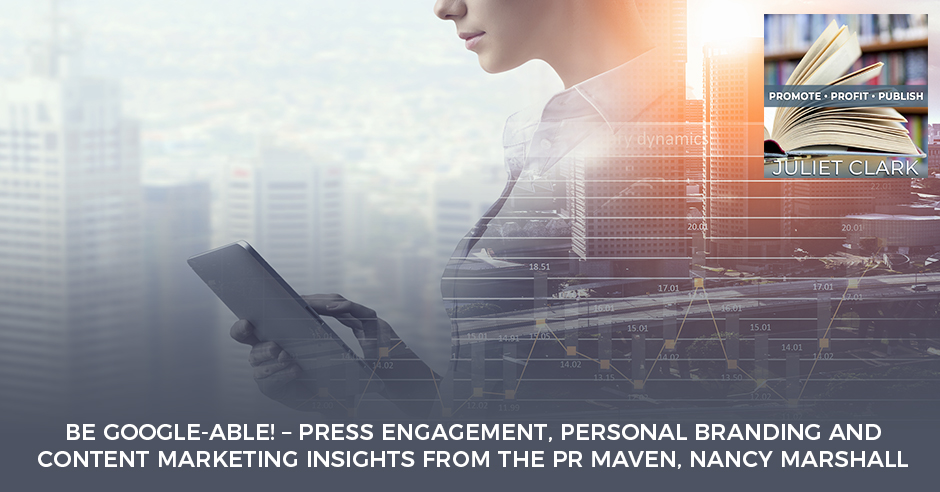
Public relations is fun, but it’s also hard. But if there was someone who was just naturally well-suited to the job, that would be Nancy Marshall, the PR Maven and CEO of Marshall Communications. Taking what she learned from a life’s career in the space, Nancy wrote PR Works! – a book of PR how-tos and resources interspersed with little vignettes from her personal career. She is also the host of the PR Maven Podcast. Joining Juliet Clark on the show, Nancy shares some useful insights and tips on press engagement, personal branding, content marketing and podcasting.
—
Watch the episode here
Listen to the podcast here
Be Google-able! – Press Engagement, Personal Branding And Content Marketing Insights From The PR Maven, Nancy Marshall
Our guest is Nancy Marshall. There’s one word to describe her and it’s gumption. She is the PR Maven and CEO of Marshall Communications and she’s got a lot of it. Connecticut-born and a Mainer, she’s a Yankee powerhouse of city-girl grit, staunch country values and go-getter vigor and enthusiastic storyteller. The lady has got gumption and a grin. With her infectious laugh, bone-deep curiosity and hunger for people’s stories, Nancy exudes vitality and makes friends wherever she goes. Welcome, Nancy. You write well too.
I have people, Juliet.
I invited Nancy. I met her over on LinkedIn and she was smiling in that picture so I thought, “I better invite her.” She’s known as the PR Maven. Tell us about your background and how you got started in public relations of all things because it’s fun, but it’s hard.
It is fun but hard and people think, “You have such a fun job. You get to go around doing tourist things and going to cocktail parties, lunch and stuff.” It is fun, but there’s hard work behind it too. I got into public relations, thanks to my father, who is not with us anymore. He knew when I was a teenager that public relations would be a good career for me. At the time when I was a teenager, I loved the whole idea of conferences and events. I wanted to be that person who walked around with a clipboard and checked things off and was telling people what to do. What I was thinking of then was a meeting planner, although I didn’t know what to call it. My father encouraged me to think bigger in terms of PR. He worked for the Westinghouse Electric Corporation. When I was seventeen years of age, we did a job shadow in Pittsburgh, Pennsylvania, with the corporate headquarters of Westinghouse. That’s when I saw PR in action. I decided that it’s what I wanted to do.
I came from the advertising world at Chiat\Day and I will say the parties and the events are fun at first, but when you have to do it every night, it gets old.
After doing it for as long as I have, if I can go home and put my bathrobe on, it seems like a big drill and I’m embarrassed to say that.
I get it. I was going back and forth between Los Angeles and New York and, a lot of studio stuff in it, a lot of late nights. The creatives wouldn’t show up until 10:00, 11:00 because they would stay out pretty much all-night partying, but not me. I had to come in early.
That’s where they get their creative juice, I guess.
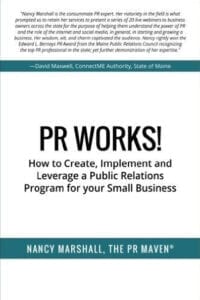
PR Works!
You’ve written a book called PR Works!. Tell us about your book and what will people find out when they read it?
I tried to make the book both instructive and personal. I included a lot of how-to chapters in the book, starting with very basic, how to organize a press conference, how to attract the attention of the media, how to develop a pitching angle and how to pitch the media. I talk about social media as well. In the back of the book, I have appendices that include templates for creating everything from a press release to a media advisory and how to write an opinion piece. The back of the book has examples and templates for how to do a lot of the kinds of things that we do on a daily basis in a PR business. Whether you do a PR as part of an agency or you own your own business and can’t afford to hire an agency, hopefully this book will.
With each chapter, I also included a little vignette, little story, and a lot of them are humorous about my career in PR, which has spanned for many years. In that time, there have been a lot of humorous incidents like the time that I chartered an airplane and flew all the weathermen from Boston up to Maine. I had four meteorologists from all the network stations in Boston in this tiny little plane to go skiing for a day in Maine. It went great. When I brought them back to the airport and I put them all back in the tiny little plane with their lunch bags, the plane took off and it looked like it was heading straight into the side of the mountain.
I thought, “I’m going to kill all the meteorologists from Boston and that would not be good for PR.” Luckily, that is the flight path. I didn’t realize it. When a plane takes off near Sugarloaf, it goes towards the mountain then it veers left before it hits the mountain range. Everything worked out great. We got a lot of publicity. The weatherman went back on the air that night on the 6:00 news. They all said, “I got back from Sugarloaf and it was so awesome. The conditions are great.” Trying to engage the media like that has been my life’s work. Getting them to have the first story or first-person accounts of experiences in my state.
This is important because there are a lot of people who do this wrong. Tell us a bit about some of the mistakes that people can make when trying to engage the press.
The first thing is to assume it’s the same as advertising. To call an editor and say, “I’ve got a great company. We’ve got the number one product in our market. We are amazing and you’d have to do a story about us because obviously, we are the most amazing product in the whole country.” The editor is thinking, “If you’re so amazing, then buy an ad and pay for advertising.” That’s dumb because then you’re going to lose the respect of that editor. They’re going to think you don’t know what you’re talking about because their job is not to promote you. Their job is to report the news. You need to figure out how your product or service or yourself are newsworthy and how you are a newsmaker.
We’re facing this terrible Coronavirus outbreak worldwide and that’s impacting almost every single business. If you can pitch a hook that’s newsworthy to the media that ties in with that virus or at another time, something that you do that is affected by or affects the current day’s news. For example, something that affects the presidential election. You need to show how you are impacted by or how you impact the news because that’s why they call it the nightly news. It’s not called an ad paper or nightly ads. You need to understand the difference between public relations and advertising.
As the author of a book, do you feel that adds another level of credibility to your brand and the services you provide?
It’s not the press’s job to promote you. Their job is to report the news. You need to figure out how you can be newsworthy to engage them. Share on XTotally, in so many ways. First of all, when the book first came out, you do a book tour, which allows you to go around and meet with a lot of people face-to-face. If you’re the person standing in front of the room with the book, all of a sudden you are considered an expert. To be positioned as an expert or an authority in this topic makes you that much more valuable. It’s like the difference between the coffee that you buy at the convenience store that’s also at a gas station or the coffee that you get at Starbucks. You’ll pay $0.90 at the Cumberland Farms or the Quickie Gas Mart, but you’ll pay $5 for that same cup of coffee with the Starbucks cup. That is the difference between someone who has not written a book, who says they’re a PR person. They’re like a commodity or the person who has a book and an established brand, then they have differentiated themselves from everybody else who does what you do. You want to make yourself into a cup of Starbucks coffee.
For the people who aren’t familiar with personal branding, can you explain that a bit? I don’t think that a lot of people who write books understand that there’s a lot of personal branding that goes behind it. You don’t produce a book and put it on the market. There’s a whole bunch more that goes along with that.
In this day and age, when Google is so powerful, anybody who is going to meet you or has met you is going to google your name. For one thing, personal branding means that you will have a lot of content about you on Google, both your own website and hopefully media coverage from magazines, newspapers, TV stations, radio shows, etc. It’s important in order to build a personal brand to have a lot of coverage on various websites and eventually even Wikipedia. For Wikipedia to consider you, you have to be considered an expert in your field. It’s what I was saying before that if you’re a plumber, an electrician, a PR person or an ad executive, you need to differentiate yourself from all the other people who do what you do. That’s why you build a personal brand and essentially tell your story. You also want to give the words to others so when they’re referring you, they can say, “You believe this, Juliet. She is the most amazing person. She helps people become experts in their field.”
By giving them the words to say, you provide brand ambassadors or people who can refer you to others. Personal branding is all about making yourself memorable, making yourself differentiated from others. If you have a common name like Joe Smith or Mary Jones or something, you want to be sure you are the version of you that people are looking for. If they’re googling you, Mary Smith seamstress or Mary Smith plumber or Mary Smith electrician, you come up, God forbid they can’t find you. A lot of times you might meet somebody at a networking event, somebody might need what you do, but they can’t remember. They might not remember your name or they might not remember what you or where you’re from. Google has changed us so much. You have to be google-able in this day and age. I don’t even know if that’s a word. I think it needs to be a new word. It’s like findable, which I think is a word.
Searchable, findable and all of those things. People have to be able to find you and that is so true about a common name. I know when I look at somebody on LinkedIn who has a common name and I’ve met them briefly, sometimes I can’t tell from LinkedIn which one they actually are. You do have to differentiate yourself from every other Mary Smith out there.
If you have a common name, that’s why you need to do it. If you have a complex name that’s hard to spell and people can’t remember it, that’s another reason that you need to have different variations of your name online. You probably should buy the URL for very different variations of your own name in case people are always misspelling it. I thought of another word, googlability. You need to improve your googlability. It’s essential to make yourself findable. This is that when I started my career we didn’t think about these things. In those days, people were looking us up in the telephone book, but now we have the World Wide Web so people from around the world can find us. There’s another thing called the long tail of the web. You could become an expert in a narrow niche by getting a lot of content about your niche specialty.
For example, if you are a PR person who specializes in travel for disabled people or people in wheelchairs, that would be a niche specialty you could write about and put a lot of content online to make yourself findable by people around the world. I have a friend named Cory Lee, who’s a young man who is in a wheelchair. He’s a travel writer who is positioning himself as an expert on writing about destinations around the world that are handicap-accessible. If you Google Cory Lee, you’ll find all this travel writing and he’s done the most amazing things. He’s fearless. He’s done zip lining in his wheelchair. He does the most amazing and daring things. Talk about the long tail of the web, he is now known worldwide among travel writers for his area of expertise.
When you find a solid niche, it’s amazing. I’m part of a group called The Dames and we had an accountant on who was multiple seven figures and she served pastors and churches. Who would have even thought there’s a whole way that they do their books that’s different and that was their niche? I was blown away by how they had this little bitty piece of what other accountants go after everything. They did this little bitty piece and they did it well. In addition to your book, you’re well-positioned with your podcast. Tell us a bit about why you have a podcast and what you’re doing with that. I think it’s always interesting when we go out there and do things like this.

PR Maven: Personal branding is all about making yourself memorable, making yourself differentiated from others.
I started The PR Maven Podcast because I learned all about content marketing, which is a new blurry area between PR and advertising. That’s the whole art and science of creating content, whether it’s videos, podcasts, stories or even social media that is attractive to your targeted audience. Did you know that soap operas were started in the 1940s and 1950s by soap companies like Procter & Gamble in order to get an engaged audience of people that were interested in the stories that they were telling?
I had no idea.
That is the origin of content marketing. Content marketing started with soap operas. When you think about it, how dames will say, “I watch my stories every day.”
My grandmother used to say that.
Your grandmother was the targeted audience. Procter & Gamble would get her all engaged in her stories. They’d come in and say, “Buy some Tide for your laundry.” That was the whole premise of soap operas. If each of us thinks about somebody that needs to create our own soap opera and our own audience to tell our own unique and engaging story, that’s our job as a marketer in this day and age, not just marketers. I think everybody needs to think about how they’re going to engage their audience and get people to be loyal to them. I started my podcast as a way to build up my loyal following and it’s working. It’s so great because I can talk to interesting people and have good conversations. If you and I met at a conference or something, we probably wouldn’t have this deep of a conversation together and ask all these questions.
A podcast gives you a perfect opportunity to be curious about somebody and learn about them. That’s why I love it. It allows me to talk to people and share the conversations. We slice and dice the content into little chunk size pieces and we share it. We tweet for a long time after each episode, we’ll keep tweeting about it, and we create these infographics and we put it on LinkedIn. I write about it for Forbes.com. I have a column where I share things that I learned on my podcast from people. I use it for speaking engagements and articles. There are so many different ways you can slice and dice the content from a podcast. It’s all working. It has accelerated the growth of my business.
This is for you if you love to talk and I love to talk to people. When I was growing up, that was always my parent’s thing like, “Do you ever stop talking?”
We used to get in trouble for it in school. They’d send us out in the hall. I don’t know. I got in the hall when I was in kindergarten for talking.
You have to be Google-able in this day and age. Share on XI was a rule follower, but I talk the rest of the time. I get it. How do you find your podcast guests?
They’re friends that I’ve had for a long time or if I meet somebody interesting at a conference or past guests will introduce other people that they recommend. I’m always scouring the countryside for people. It’s what I do on an ongoing basis. If I meet somebody interesting, I ask them to be on my show.
That’s what I do. I do a lot on LinkedIn because I meet new people. I’m always astounded when I want to do a pod swap and people come back and say, “I don’t think you’re a good guest for our show.” I’m always inquisitive like, “What do you do?” There is a podcast for everything. One girl told me that she has a whole show on chocolate. I’m like, “Who is listening to that?” Who doesn’t like chocolate? I can’t even go into all the niches. It’s so interesting that there’s something in a podcast for everybody out there.
That’s what I call the long tail of the web again. That’s why podcasting is different from broadcasting. Broadcasting like the Today Show and the NBC Nightly News, they have to appeal to wide swaths of people. It can’t be narrow. They might have a segment on chocolate or they might have a segment on the disabled traveler or something, but they can’t be all about that. That’s why it’s so awesome that podcasting is what I call narrowcasting. It’s about a very specific topic. My platform is that you need to build your network both online and in person. If you meet somebody in person, you should endeavor to connect with them through LinkedIn or Facebook or Instagram or something or all of those.
If you meet somebody online, you should try to meet them in person. That’s where the magic happens. When you enjoy a chocolate or a glass of wine or an adventure with another human, there are chemicals that pass between human beings when they’re in the same space that are happiness and healthy hormones. I think so many people if they meet online, they don’t even try to meet in person. They’re missing out on one of the biggest things in life, which is togetherness.
I would agree with that. That’s one of my big pet peeves about the online world. A click is not a relationship. As a society, we’re beginning to realize that more and more. I think a lot of people are missing that human interaction. I had this experience and thank God I did. Years ago, someone reached out to be on my podcast and she was a former high-end call girl. I’m thinking like, “Is this somebody I’d want to meet in person?” I ran into her after I talked to her and interviewed her at an event and she was lovely. I would have never guessed if she hadn’t been on my show that she was a high-class call girl.
That’s why she was a high-class call girl, not a low-class call girl.
We’re going to get in the gutter here. Nancy, where do we find you? Who do you specialize in and what are you looking for?
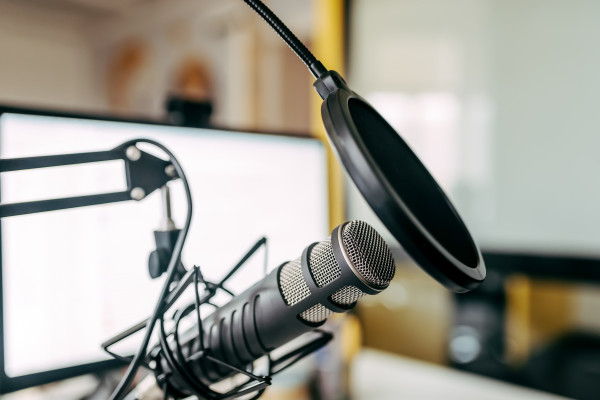
PR Maven: There are so many different ways you can slice and dice the content from a podcast and use it to maintain a constant online presence.
My agency specializes in creating long-term public relations and marketing communications plans for non-profits and for-profits in tourism, in economic development and healthcare. We have something that we call The Marshall Plan and I have trademarked the term, The Marshall Plan. At MarshallPR.com, you can learn more about The Marshall plan. You’re wondering why I trademarked or how I trademarked.
I’m wondering how you trademarked it. Isn’t that something from World War I or II?
There are different classifications for trademarks. We own the classification of the marketing plan. We don’t own the classification of the reorganization of Europe.
I know I took history. I know all you Millennials out there had no history, but people our age had history.
That’s what we look for as an agency. I also have my PR Maven personal branding services, which I specialize in helping authors, celebrities, and experts to become more find-able. That whole googlability thing by developing content and placing people on the internet and making them more well-known. I have a twelve-step personal branding process that I go through with people over the course of an entire year. That would also be at PRMaven.com.
Thank you, Nancy. It’s been enjoyable.
Thank you, Juliet. I enjoyed it too. I look forward to having you on The PR Maven Podcast.
Important Links
- LinkedIn – Nancy Marshall
- PR Works!
- Cory Lee
- The Dames
- The PR Maven Podcast
- Forbes.com
- MarshallPR.com
- PRMaven.com
About Nancy Marshall
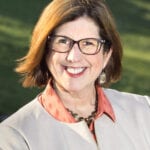 I’ll never forget the thrill I felt at age 25 when a story I’d pitched landed on page one of the Wall Street Journal. There was even one of those cool pencil drawings to go with it.
I’ll never forget the thrill I felt at age 25 when a story I’d pitched landed on page one of the Wall Street Journal. There was even one of those cool pencil drawings to go with it.
I was working at Sugarloaf as Director of Communications and ski helmets had become ‘a thing.’ Many skiers, driven more by vanity than by safety, refused to wear them for fear they might not look good, but the management at Sugarloaf had figured out a way to make them cool.
I called the Wall Street Journal and pitched the story. Must have been a slow news day on Wall Street because my story landed on page one. Ever since, I’ve been driven to continue to pitch stories for clients in media outlets from local weekly papers to large TV networks and national publications.
It can be scary to talk to a gruff reporter in a busy newsroom but I’m fearless. It’s all about finding the right news hook. I still feel that same thrill when I land a big story. And now I have an entire team of big pitchers.
My mind is a mental database of contacts. I truly love making connections by introducing people to each other, whether it’s pitching a reporter on a story they might be interested in or connecting people because of shared interests.
After college, I moved to Sugarloaf to work in the PR department. I learned the importance of embracing technology for PR and communications, including how to store contact information in databases and educating people about the commercial internet.
I started my own PR agency and represented Sugarloaf as my first client. Marshall Communications was born in 1991.
Since then, I’ve been making contacts in the media, business and professional organizations around the world. I’ve learned to meld the best of old-school PR techniques relations, as well as more current tactics, like using Twitter to connect with journalists.
My superpowers are making friends with nearly everyone I meet, and hearing of a PR challenge and seeing the path to overcoming it by connecting people, organizations, and solutions.
The database in my head kicks in and the path forward lights up! Working in PR for almost 40 years, I can now hear a problem and figure out a solution the way a mathematician solves a complex algebraic formula.
That’s why I created The Marshall Plan®, a 65-step process to develop a marketing road map with measurable results and objectives.
What drives me? Connecting people and solving their marketing challenges. My work is integral with my personality. I’m as enthusiastic about the work today as I was my first day of work in 1982.
Love the show? Subscribe, rate, review, and share!

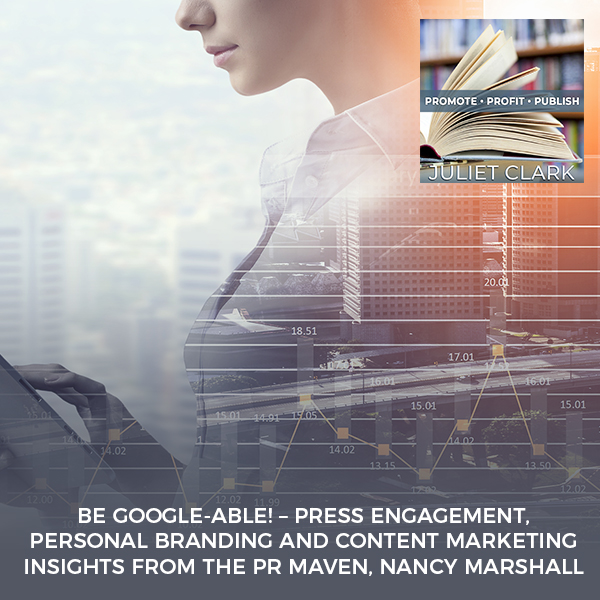







Leave A Comment